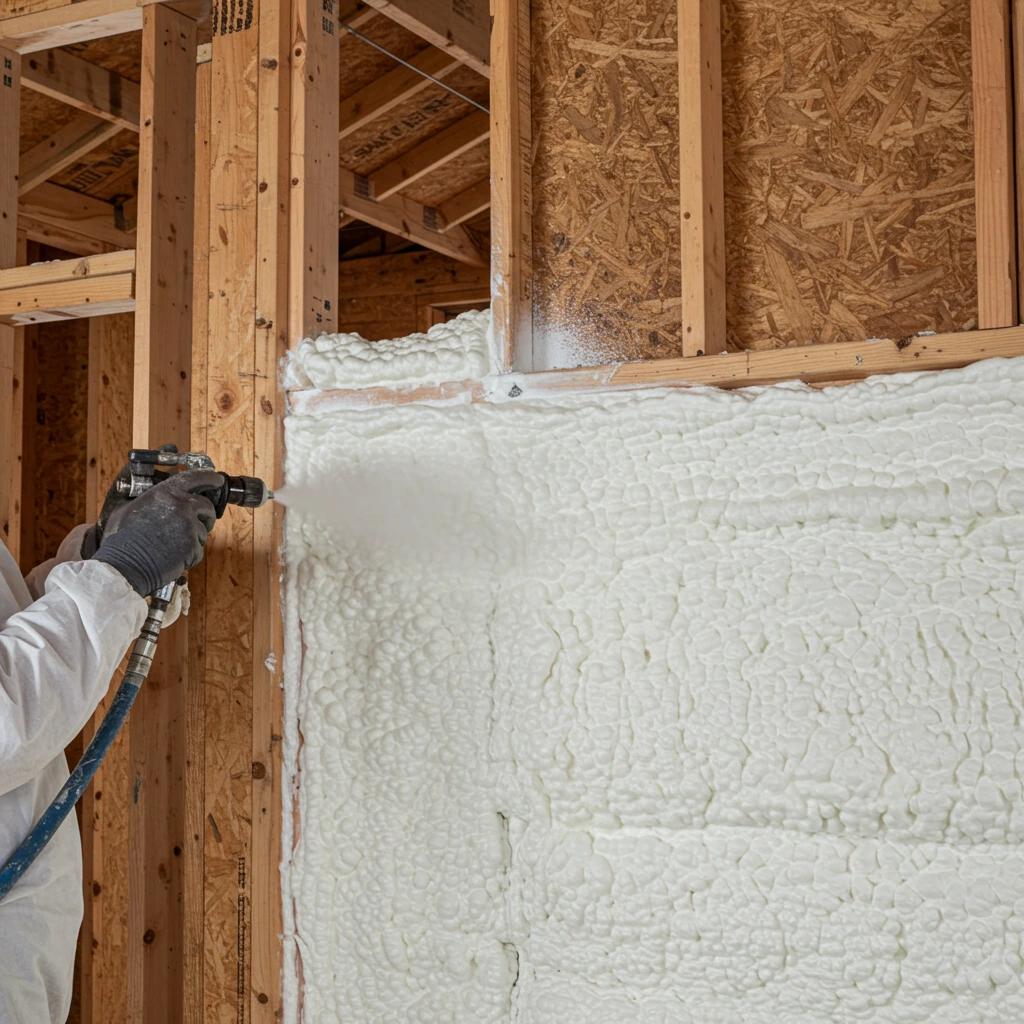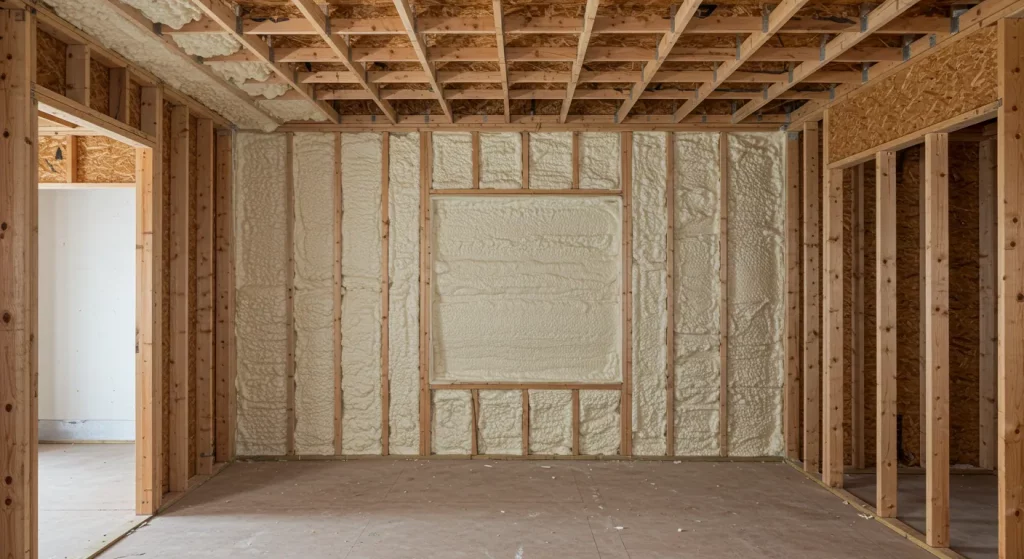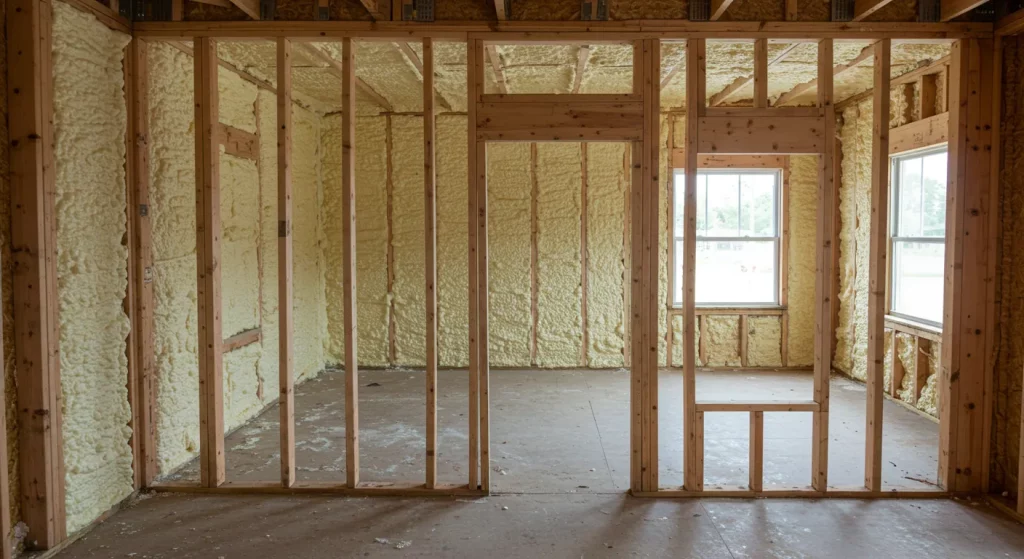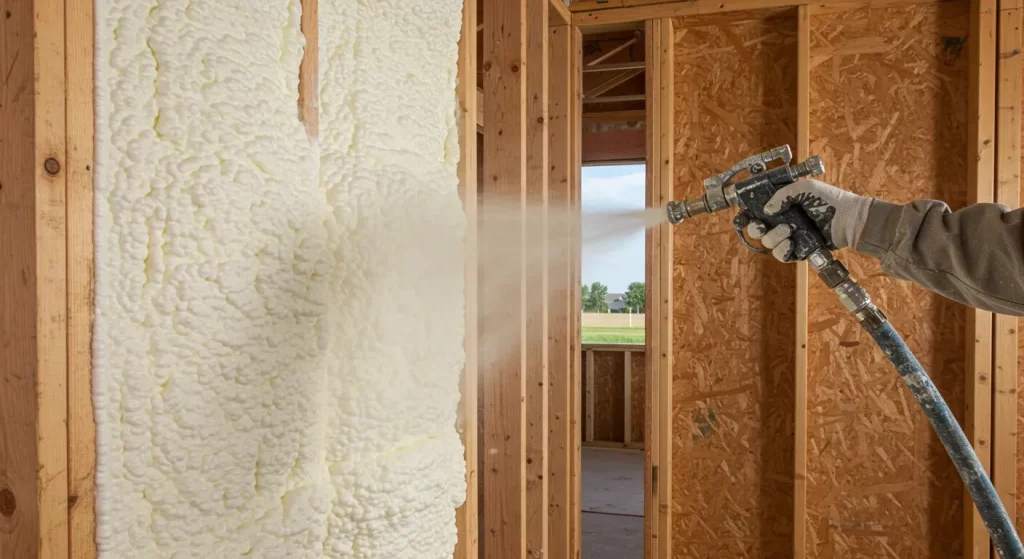Closed-cell spray foam insulation provides the highest thermal resistance among commonly used insulation materials. For Raleigh’s humid summers and fluctuating winters, it offers superior moisture resistance, structural reinforcement, and energy control. Its dense structure minimizes air infiltration, which significantly reduces HVAC load in both residential and commercial settings.
Installation experience across Raleigh shows closed-cell spray foam holds up under the region’s variable humidity and temperature extremes far better than traditional batt or open-cell solutions. The following content provides technical comparisons, climate-specific insights, and practical installation tips backed by direct field knowledge.
Key Differences Compared to Other Insulation Types
| Feature | Closed-Cell Spray Foam | Open-Cell Spray Foam | Fiberglass Batt | Blown-In Cellulose |
|---|---|---|---|---|
| R-Value (per inch) | 6.5 – 7.0 | 3.5 – 3.8 | 2.9 – 3.8 | 3.2 – 3.8 |
| Water Resistance | High | Low | Low | Low |
| Air Sealing Capability | Excellent | Good | Poor | Moderate |
| Vapor Barrier | Yes | No | No | No |
| Structural Reinforcement | Yes | No | No | No |
| Best Application Environment | All climates | Dry climates | Mild climates | Mild climates |
Technical Specifications
| Property | Closed-Cell Spray Foam |
|---|---|
| R-Value | 6.5 to 7.0 per inch |
| Perm Rating | < 1.0 (acts as a vapor retarder) |
| Water Absorption | Less than 2% |
| Density | Approx. 2 lbs per cubic foot |
| Expansion Ratio | 30:1 |
| Application Temperature Range | 45°F to 120°F |
| Fire Resistance Rating | Class 1 with ignition barrier |
Why This Matters for Raleigh
Raleigh experiences hot, humid summers and occasional ice storms in winter. Buildings without proper vapor control often develop moisture issues inside wall assemblies. Closed-cell insulation helps prevent condensation inside envelope cavities by serving as both a thermal and moisture barrier.
Recent regional energy audits show homes insulated with closed-cell spray foam cut energy usage by 18% to 25% compared to fiberglass-insulated homes under identical conditions. [Source: North Carolina Building Performance Association, 2024 Report]
Bonus Tip: Avoid installing during extreme humidity or immediately after rainfall. Substrate moisture impacts adhesion.
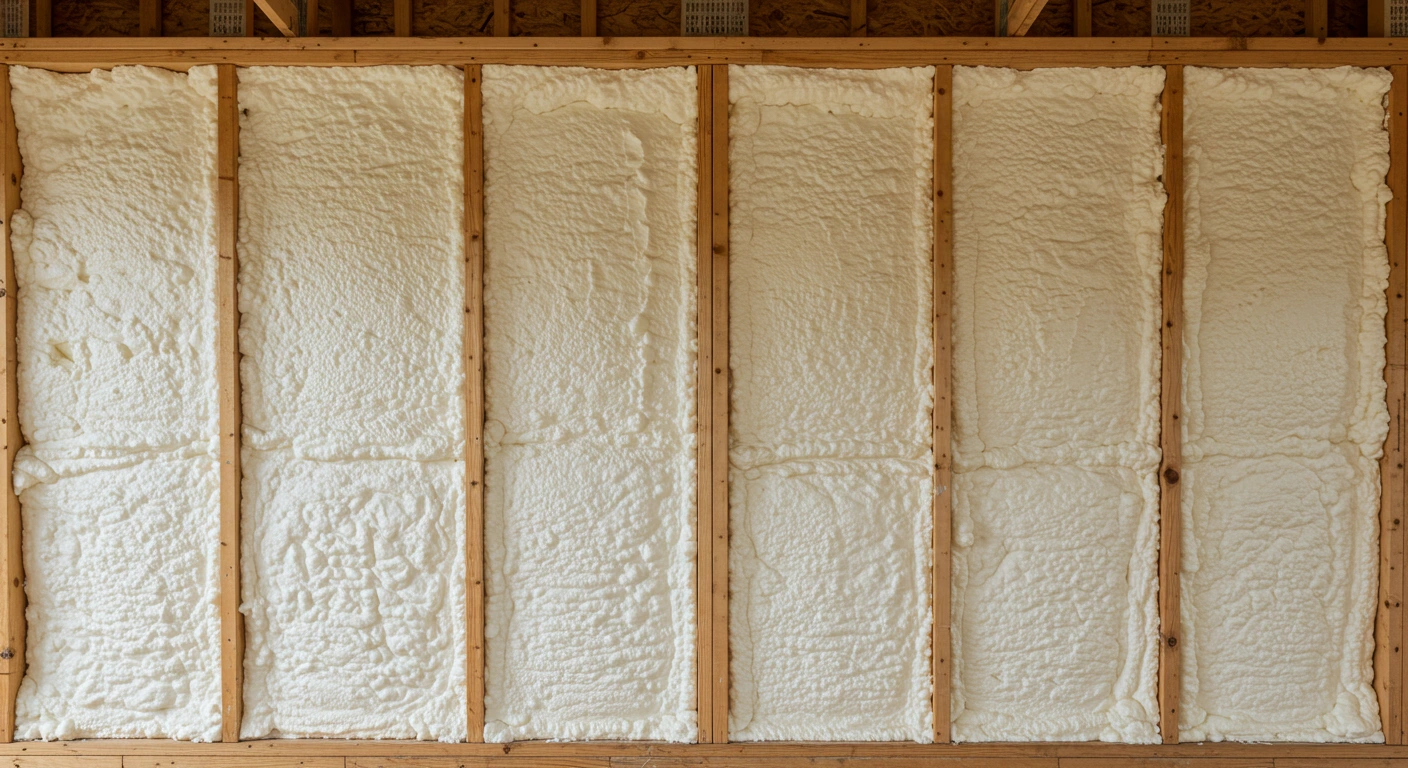
Practical Performance in Roof and Wall Systems
Roofs
Closed-cell insulation is ideal for both vented and unvented attic assemblies. It forms an air-impermeable layer that stabilizes indoor temperature while preventing moisture migration from roof decks during summer dew cycles.
Walls
Exterior wall cavities benefit from closed-cell’s rigid structure. It minimizes thermal bridging and increases racking strength, which is beneficial during high wind events in Raleigh’s storm season.
Bonus Tip: For retrofits, remove all previous insulation and test wall humidity levels to ensure no mold risk before application.
Things to Consider Before Making a Decision
- Budget Constraints: Closed-cell spray foam costs more upfront. Assess long-term savings on energy bills.
- Wall Cavity Depth: Narrow framing benefits more from high R-value per inch.
- Moisture History: Prior moisture damage requires remediation before spray application.
- Compliance: Some Raleigh-area jurisdictions require ignition barriers; check code requirements.
Common Questions Answered
Is closed-cell spray foam overkill for mild winters?
Not in Raleigh, where humidity and summer cooling demand matter as much as cold tolerance.
Can I use it in combination with other insulations?
Yes. Hybrid systems with fiberglass or cellulose are sometimes used to reduce cost.
Does it affect home resale value?
Indirectly. Better energy performance can be a selling point, though appraisers may not assign direct value.
How long does it last?
Over 30 years with no settling or degradation when installed correctly.
Relevant Insulation Services Provided by Raleigh Excel Spray Foam Insulation
- Closed-Cell Spray Foam Insulation: Delivers air sealing, moisture control, and structural reinforcement.
- Roof Insulation: Controls attic heat gain and prevents condensation under roof decks.
- Wall Insulation: Improves energy retention and air quality by sealing cavity voids.
- Commercial Spray Foam Insulation: Ideal for warehouses and mixed-use buildings seeking code-compliant thermal control.
Get Expert Insulation Guidance
Speak directly with professionals who understand Raleigh’s construction styles and climate challenges. Raleigh Excel Spray Foam Insulation offers technical insight based on years of local installation experience.
Phone: (919) 301-9435
Email: [email protected]
FAQ
How does closed-cell insulation impact HVAC sizing?
It allows for right-sizing equipment, reducing both capital and operational costs.
What if part of my home already has other insulation?
Target key leakage areas like rim joists and attics with closed-cell. Full coverage isn’t always required.
Can it be used in historic homes?
Only with detailed inspection. Vapor sealing in older structures must account for breathability.
Is off-gassing a concern?
No long-term emissions when installed properly. Ventilate for 24 hours post-application.
Does installation require permits in Raleigh?
Permits depend on application area and building classification. Verify with Wake County Planning.




